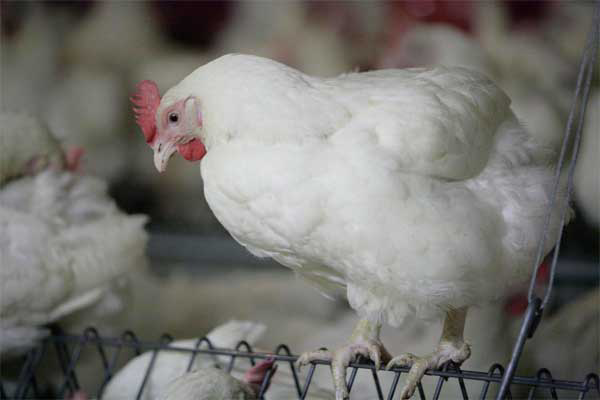Broilers benefit from low protein diet

A low crude protein diet for broiler breeders changes body composition during the rearing period. This positively affects hatchability during the first phase and egg production during the second phase of the laying period.
This was concluded by poultry scientist Rick van Emous of Wageningen UR Livestock in the Netherlands. Van Emous investigated the effect of two dietary protein levels (high and low) during rearing on, feed intake, body composition at the end of the rearing period and reproductive performance of broiler breeder females. A total of 2,880 one-day old Ross 308 broiler breeder female chicks were placed in 36 pens and followed until 60 wk of age.
Effects of low protein diet
To meet body weight target at 22 wk of age, average feed intake increased by 12.8% for the pullets fed the low protein diet. At 22 wk of age, birds fed the low protein diet had 15% less breast muscle but 86% more abdominal fat, compared to the high protein fed birds. This resulted in an 1.3% increased hatchability due to a decreased embryonic mortality in the first phase of the laying period (23-45 wk of age). Moreover, low protein fed birds produced 3.6 more hatching eggs during the second phase of the laying period (46-60 wk of age). Economical calculations show that feeding a low protein diet resulted in an increased profit of € 0.53 per breeder or about € 12,500 for an average broiler breeder farm per year.
Changing body composition affects reproduction
Van Emous noticed that during the last decades the genetic potential of broiler breeders increased due to selection on growth of the offspring. The growing period of broilers decreased from 84 to 33 days to produce a broiler weighing 1.8 kg. Its feed conversion ratio decreased in the same period from 3.25 to 1.50 and the daily growth increased from 21 to 55 g. This selection on increased feed conversion, growth rate and body fat content has not only affected the offspring but also the parent stock (broiler breeders). Optimising body composition (more fat and less breast meat) of female broiler breeders during the rearing period might improve persistency of the reproductive performance.
The study is part of a PhD project on body condition and nutrition in broiler breeders. It was carried out by Wageningen UR Livestock Research and financed by the Dutch Product Boards for Livestock, Meat and Eggs (PVE), the Product Board Animal Feed (PDV) and Aviagen-EPI.











